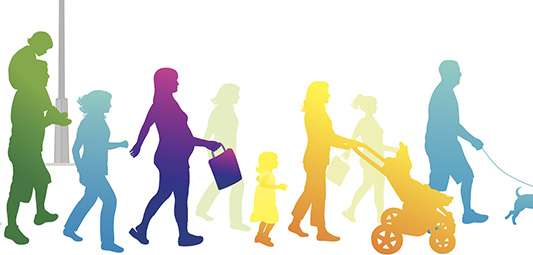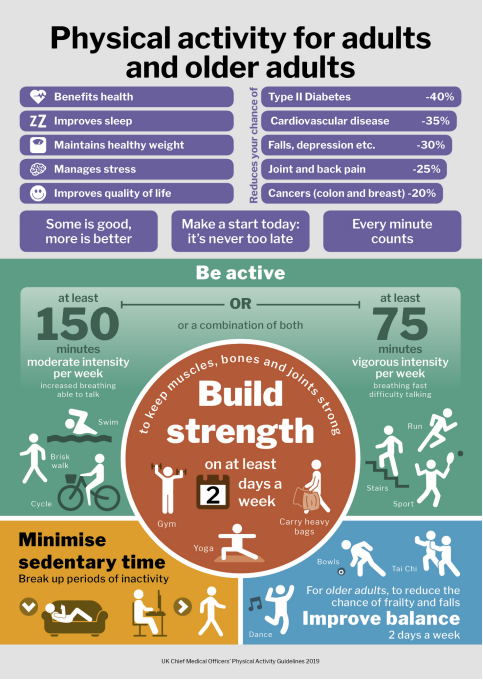
..
If physical activity were a drug, we would refer to it as a miracle cure, due to the great many illnesses it can prevent and help treat.
UK Chief Medical Officers’ Physical Activity Guidelines 2019
..
Why should we be active?
Being active is one of the best things we can do for our body and mind. Regular physical activity can:
- Improve your mood and manage your stress
- Build your confidence and self esteem
- Reduce anxiety and depression
- Improve your sleep
- Boost your energy levels
- Improve your fitness
- Help with back or joint pain
Evidence shows that even small increases in activity can help to prevent and treat chronic diseases such as heart disease, stroke, diabetes, some cancers, and osteoarthritis, and improve quality of life. Physical activity brings people together to enjoy shared activities and contributes to building strong communities whilst supporting the economy to grow.
The good news, the biggest health benefits are gained by those who are inactive and start getting active!

What counts as physical activity?
- Physical activity is simply any kind of activity or movement that we do in our day-to-day lives.
- It includes a whole range of activities from structured sport and exercise classes, to housework, gardening and active travel such as walking/cycling to and from work.
- You don’t need to run a marathon to gain benefits from an active lifestyle; any activity which makes you breathe a bit faster, feel a bit warmer and raises your heart rate can help you to lead a healthier, and happier, life.
How much should we do?
- The amount of activity we should aim for depends on our age.
- The UK Chief Medical Officers recommended guidelines (below) can give you a good indication of how much adults should be aiming for.
- However, any amount of activity is better than none, and the good news is that even small changes can make a big difference over time, such as using the stairs or getting off the bus a stop early – it all counts.
Click here to see recommended guidelines for other groups such as under 5s, young children (5-18 years), disabled adults, and during pregnancy and postpartum as these recommendations vary.
UK Chief Medical Officers Physical Activity Guidelines 2019
Any activity is better than none, and more is better still.